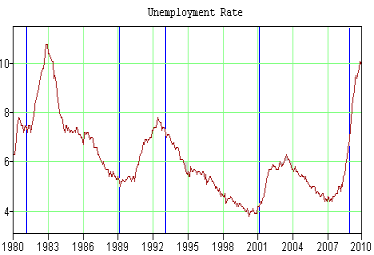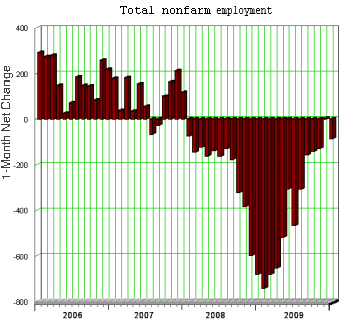
 Thomas Wolfe spent his literary life wandering in Europe and the U.S., but his novels remained focused on his boyhood home in Asheville, North Carolina – his mother’s boarding house [now a tourist destination surrounded by modern buildings]. His novels stand with Proust’s Rememberance of Things Past as a testimony to our longing and nostalgia for an earlier time of life when the world, though complex and confusing, is fresh and open for discovery. But as Wolfe says, You Can’t Go Home Again.
Thomas Wolfe spent his literary life wandering in Europe and the U.S., but his novels remained focused on his boyhood home in Asheville, North Carolina – his mother’s boarding house [now a tourist destination surrounded by modern buildings]. His novels stand with Proust’s Rememberance of Things Past as a testimony to our longing and nostalgia for an earlier time of life when the world, though complex and confusing, is fresh and open for discovery. But as Wolfe says, You Can’t Go Home Again.
 And he didn’t. He wrote his books in Europe, finally coming home for good in 1936 [fleeing the rise of the Nazis]. He died from tuberculosis in 1938. One wonders if some of his poignant longing didn’t have something to do with the state of the world during his brief adulthood. I mention Wolfe because I’ve been thinking about my parents and their stories. Both were fine story-tellers with somewhat idealized yarns about their earlier lives. Both grew up in families hard-hit by the Great Depression – coal mining immigrants in Ohio and vaudevillians in rural Georgia. I always wondered about that. The Depression and World War II spanned their adolescence and young adulthood, but their stories were about people and adventures, not the hardships. They had the same bittersweet nostalgic attachments to their coming of age years as Wolfe. But I always wondered what it would’ve been like to grow up in those years with that kind of hardship. One thing about history, it’s not in real time. It’s presented to us with its meaning and outcome already somewhat known – stripped of the emotion and uncertainty that accompanied it when it was "the present." Pearl Harbor looked a lot different on December 8, 1941 than it looks now. Even September 11, 2001 is an aging memory – now more a turning point than the cataclysm that’s still hard to get one’s mind around.
And he didn’t. He wrote his books in Europe, finally coming home for good in 1936 [fleeing the rise of the Nazis]. He died from tuberculosis in 1938. One wonders if some of his poignant longing didn’t have something to do with the state of the world during his brief adulthood. I mention Wolfe because I’ve been thinking about my parents and their stories. Both were fine story-tellers with somewhat idealized yarns about their earlier lives. Both grew up in families hard-hit by the Great Depression – coal mining immigrants in Ohio and vaudevillians in rural Georgia. I always wondered about that. The Depression and World War II spanned their adolescence and young adulthood, but their stories were about people and adventures, not the hardships. They had the same bittersweet nostalgic attachments to their coming of age years as Wolfe. But I always wondered what it would’ve been like to grow up in those years with that kind of hardship. One thing about history, it’s not in real time. It’s presented to us with its meaning and outcome already somewhat known – stripped of the emotion and uncertainty that accompanied it when it was "the present." Pearl Harbor looked a lot different on December 8, 1941 than it looks now. Even September 11, 2001 is an aging memory – now more a turning point than the cataclysm that’s still hard to get one’s mind around.
After the Stock Market tanked in September 2008, like many I pored over the events of 1929 and the period afterward. There was so much that was similar, so many lessons to be learned about how we let it happen again, about how we finally recovered back then, about the mistakes before and after. But there was one major difference. The 1929 Crash happened in the early days of a Presidency – a presidency that was an extension of one that came before it. Herbert Hoover was a well meaning guy, but he was a Conservative Republican who couldn’t let himself intervene in a massive way, and the country fell apart in front of his eyes, in spite of his efforts. FDR was able to make radical changes. We’d suffered enough and were willing to do what it took. I doubt that Hoover could’ve brought it off. Pain is a great motivator and it took 3+ years of pain with unemployment at 25% for us to act. Even at that, after 4 years, FDR backed off too soon with disastrous results. People just wanted it to go back to how it was.
This time around, I’m not sure we’ve suffered enough. We’re still hanging on to the idea that it can go back to how it was a couple of years ago, but You Can’t Go Home Again. This was a fundamental crash like 1929, not part of the business cycle of capitalism. People who realize this are mad that Obama hasn’t made sweeping changes, definitive reform. People who haven’t realized this are furious at the small changes he has made and are pissed off that we’re not living 2006 lives. When FDR came along, people had four years of misery under their belts. We’ve barely got a year. So we look at these numbers as disappointing.


Sorry, the comment form is closed at this time.